After last month’s debate between former President Donald Trump and Vice President Kamala Harris, which featured arguments over crowd sizes at rallies and a false claim about immigrants eating pets, the most surprising part about Tuesday night’s debate between their running mates was perhaps just how civil and focused on policy it was.
That’s not to say that there weren’t a few feisty moments — like when JD Vance had his microphone cut off and complained to the moderators that “the rules were that you guys weren't going to fact-check,” or when Tim Walz admitted he misspoke about his claim that he was in Hong Kong during the 1989 pro-democracy protests in Tiananmen Square — but the “battle of the Midwest” between the Republican Ohio senator and the Democratic Minnesota governor was downright cordial.
And things truly got testy between the two officials came toward the very end, when Walz asked Vance point-blank if Trump lost the 2020 election — and the Ohio Republican dodged the question, saying instead he was “focused on the future.”
“That’s a damning non-answer,” Walz replied.
But otherwise, the two men made the cases for their respective candidates to the American people with a focus on policy and, surprisingly, often agreeing with one another on key issues, like affordability and paid family and medical leave — though naturally differing on how to solve them.
Perhaps underscoring the polite tone of the debate — after it was all over, the two candidates shook hands again, chatted for a bit and introduced their wives to each other.
Here are some takeaways from Tuesday night’s debate:
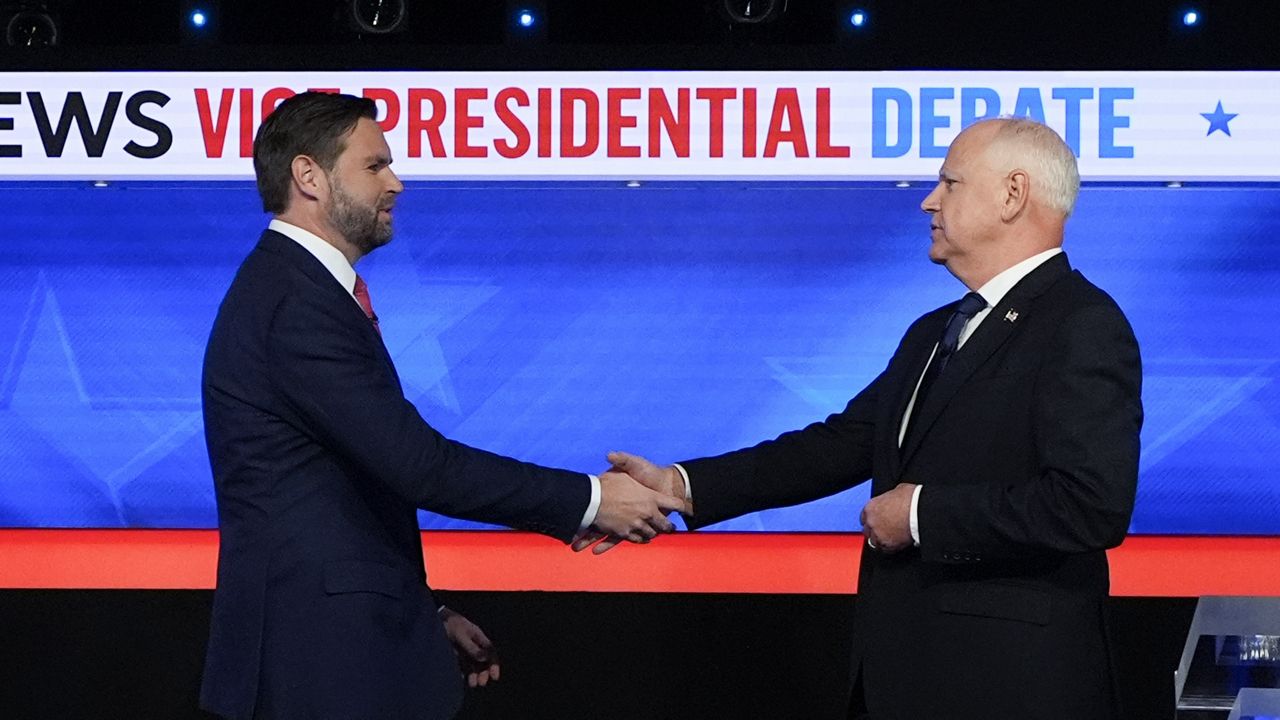
There was some agreement between Vance and Walz on the issue of paid family medical leave, with Walz even nodding along at times to one of Vance’s answers.
“I don't think Sen. Vance and I are that far apart,” Walz said.
They also agreed about the issue of gun violence, the leading cause of death for children and teenagers in America.
“I think Gov. Walz and I actually probably agree that we need to do better on this,” Ohio Sen. JD Vance said about gun violence.
But, of course, they differed on how to solve them.
On family leave, Walz said a federal program requiring paid family medical leave would “enhance our workforce, enhance our families and make it easier to have the children that you want.”
He said employees at many large companies already enjoy the benefit, but for others who don’t have it, “just imagine what happens if you get cancer or your child gets sick. We know what happens: You end up staying home. In some cases, that means no paycheck because you've got no protection on that.”
Vance said he believes a bipartisan solution in Congress is possible. The Ohio senator said he supports a federal program that covers a wide range of child care options, including through churches or coalitions of families.
“If you look at the federal programs that we have that support paid family leave right now — the Community Development Block Grant, and there's another block grant program that spends a lot of money from the federal government — these programs only go to one kind of child care model,” Vance said. “We want to promote choice and how we deliver family care and how we promote child care."
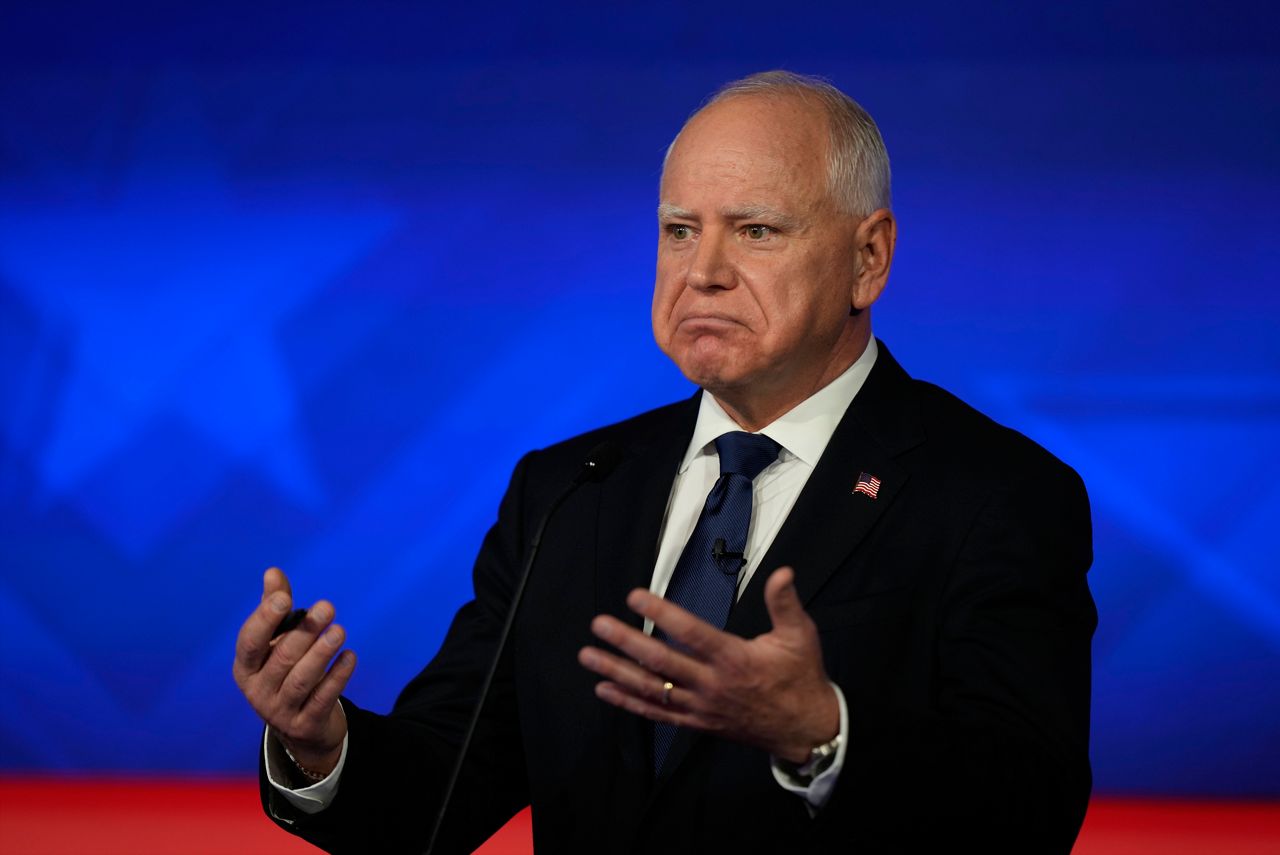
They also agreed housing prices were too high, but while Walz blamed the economic trend of companies treating housing as a commodity rather than a way for people to advance in the economy, Vance instead blamed immigrants.
“The problem we've had is that we've got a lot of folks that see housing as another commodity. It can be bought up, it can be shifted. It can be moved around. Those are not folks living in those houses,” Walz said, before discussing how stable housing can help individuals and families stabilize their lives. “That's the thing that I think we should be able to find some common ground in. But we can't blame immigrants for the only reason. That's not the case that's happening in many cities.”
Vance said some of Walz’s ideas — which included increasing federal funding for affordable housing, providing federal funds for first-time homebuyers and refurbishing existing housing stock — “are halfway decent, and some of them I disagree with.” But he argued removing immigrants from the country would reduce competition for U.S. citizens looking for homes and pitched building housing on federal lands.
“We have a lot of land that could be used. We have a lot of Americans that need homes.” Vance said. “We should be kicking out illegal immigrants who are competing for those homes, and we should be building more homes for the American citizens who deserve to be here. (Vance said he had a Federal Reserve study that suggested immigrants are driving up housing costs, but it was not immediately clear what he was referring to.)
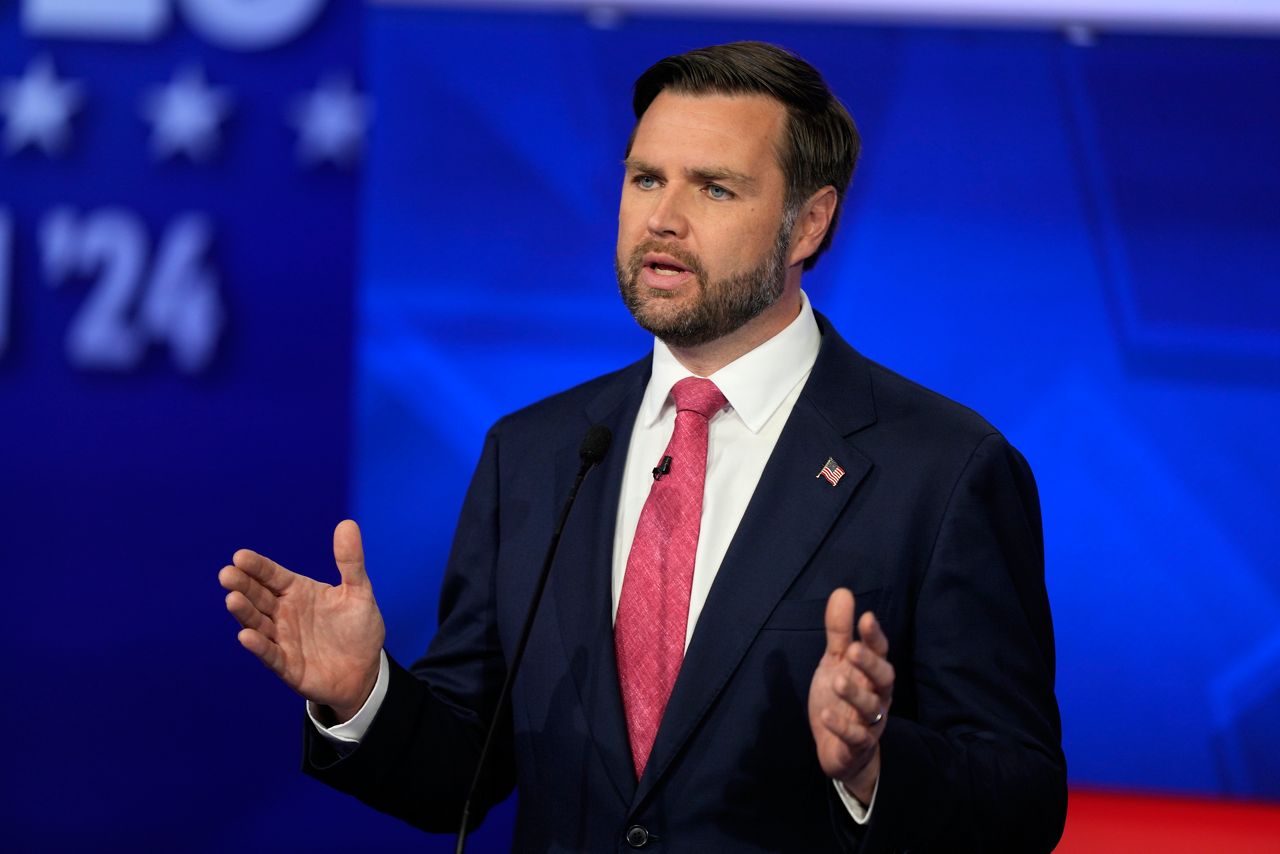
When it comes to guns, the differences were far more stark. Vance charged that almost 90% of guns used in shootings are committed with illegally obtained firearms and tied Vice President Harris to a “massive influx in the number of illegal guns run by the Mexican drug cartels.”
He advocated for increasing security in schools by making doors lock better and making doors and windows stronger and pitched increasing school resource officers and for “common-sense bipartisan solutions” on how to make schools safer.
Walz, himself a gun owner who once was celebrated by the National Rifle Association before falling out of favor with the once-powerful gun lobby, pushed back on Vance’s idea to harden schools to the point they look like forts.
“Is that what we have to do when we know there’s countries around the world that their children are not practicing these types of drills?” Walz asked, noting that Finland has high rates of gun ownership without the mass shootings.
Rebutting Walz, Vance said mental health was a driver of “a bad gun violence problem,” especially in a lot of the country’s biggest cities, but the Minnesota governor pushed back on "stigmatizing" and scapegoating mental health issues.
Just because you have a mental health issue, doesn't mean you're violent," he said. "I think what we end up doing is looking for a scapegoat. Sometimes it just is the guns. It's just the guns."
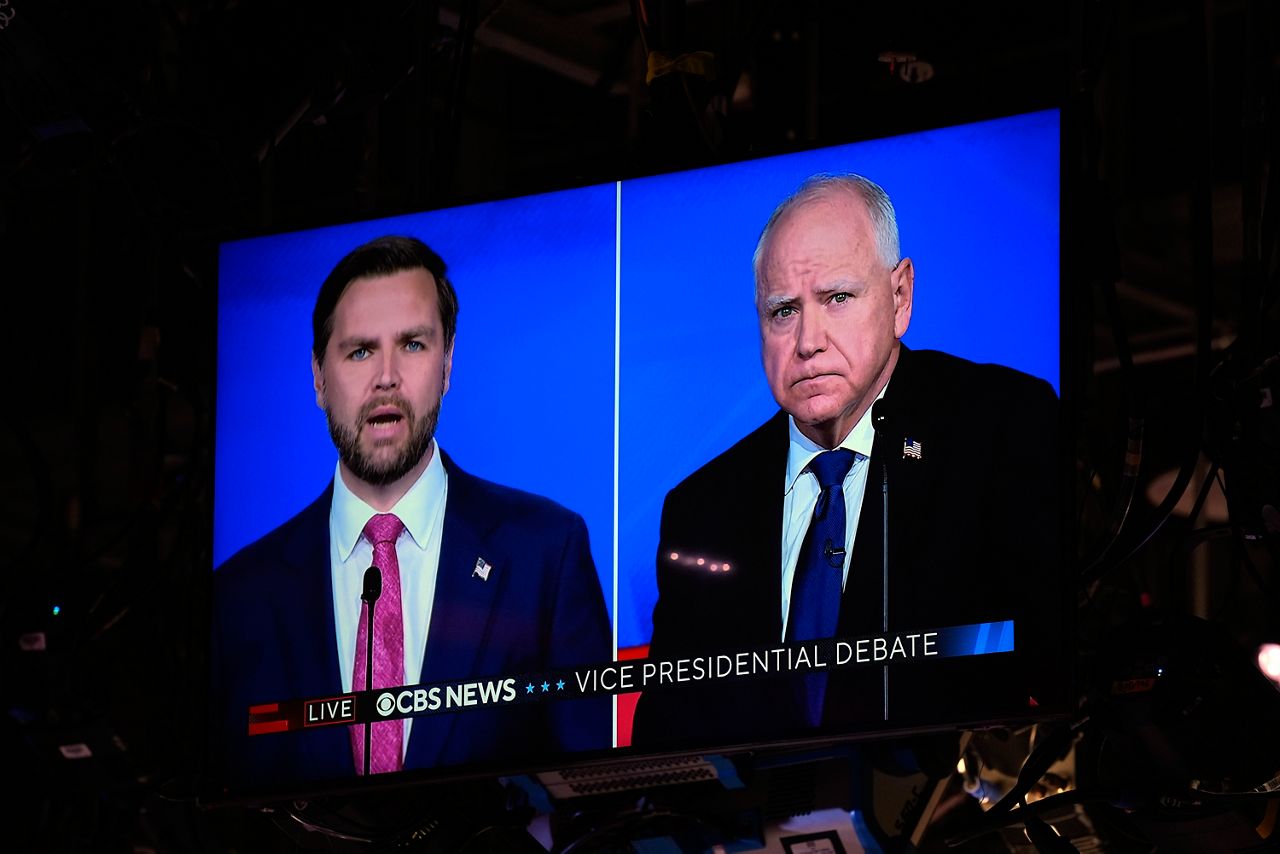
On the hot-button issue of abortion, one that could prove crucial in November, Vance admitted that Republicans have “got to do so much better of a job at earning the American people's trust back."
The Ohio senator said he wants Republicans to support fertility treatments and make it easier for mothers to afford to have babies and for young parents to afford homes to raise their families.
But on abortion itself, Vance said the issue is best left in the hands of states. He denied ever supporting a national abortion ban but acknowledged favoring “setting some minimum national standard.”
“Let the individual states make their abortion policy, and I think that's what makes the most sense in a very big, a very diverse and, let's be honest, sometimes a very, very messy and divided country,” he said.
Walz shot back, arguing: “The fact of the matter is, how can we as a nation say that your life and your rights, as basic as the right to control your own body, is determined on geography?”
The Democratic VP nominee gave examples of women who suffered complications related to abortion bans, including the death of Amber Thurman in Georgia, which had a six-week abortion ban when she was allegedly denied an emergency abortion until it was too late.
“There's a very real chance that if Amber Thurman lived in Minnesota, she would be alive today,” Walz said.
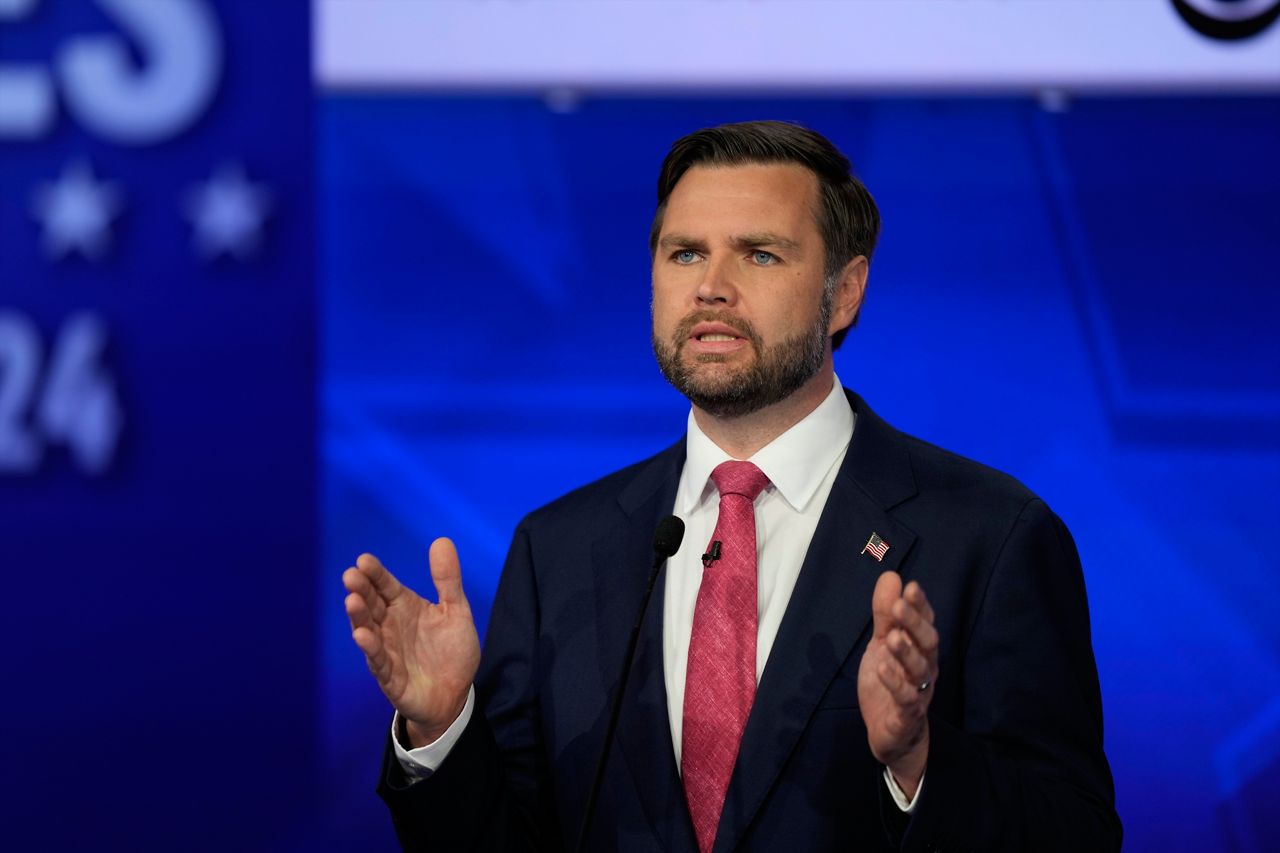
Speaking to the topic core to his and Trump’s campaign, Vance hit Harris and Walz for the state of immigration in the country, but declined to answer multiple times when asked by CBS News moderator Margaret Brennan if the next Trump administration would separate American children from their immigrant parents.
Instead, Vance falsely claimed 320,000 immigrant children had gone missing, a claim that has no basis in reality. It appears to be based on an August report from the Department of Homeland Security’s inspector that noted 32,000 migrant children did not appear for their scheduled immigration court hearings between 2019 and 2023 and that there were 291,000 migrant children who had not yet had their hearings as of May 2024.
There is nothing in the report to suggest the children were “effectively lost,” victims of sex trafficking or being used as drug mules, as Vance said on Tuesday and as Trump has repeatedly claimed.
“I didn't accuse Kamala Harris of inviting drug mules. I said that she enabled the Mexican drug cartels to operate freely in this country, and we know that they use children as drug mules, and it is a disgrace, and it has to stop,” Vance said when pressed on his claims.
Walz pushed back on Vance’s claims, calling them “not true,” and argued Harris’ support of a bipartisan border deal authored by “super conservative” Oklahoma Sen. James Lankford was evidence she was the candidate better equipped to handle the U.S.-Mexico border. That deal was killed earlier this year after Trump announced his opposition and called it “a great gift to the Democrats” in an election year.
“Kamala Harris helped get there. Fifteen hundred new border agents. Detection for drugs. [Department of Justice] money to speed up these adjudications,” Walz said. “But as soon as I was getting ready to pass and actually tackle this, Donald Trump said no. Told them to vote against it, because it gives him a campaign issue.”
The topic briefly turned to Vance and Trump’s false claims about Haitian immigrants in Springfield, Ohio, eating pets after Walz warned the backlash and bomb threats that poured into the community was evidence of “real consequences” of the Republican candidates’ rhetoric. After a brief back and forth, Vance’s mic was muted when the moderators tried to move on and he tried to make the case against the system that allows the Haitian immigrants to live in the U.S. legally.
“Look, in Springfield, Ohio, and in communities all across this country, you've got schools that are overwhelmed, you've got hospitals that are overwhelmed,” Vance said. “The people that I'm most worried about in Springfield, Ohio, are the American citizens who have had their lives destroyed by Kamala Harris's open border. It is a disgrace.”
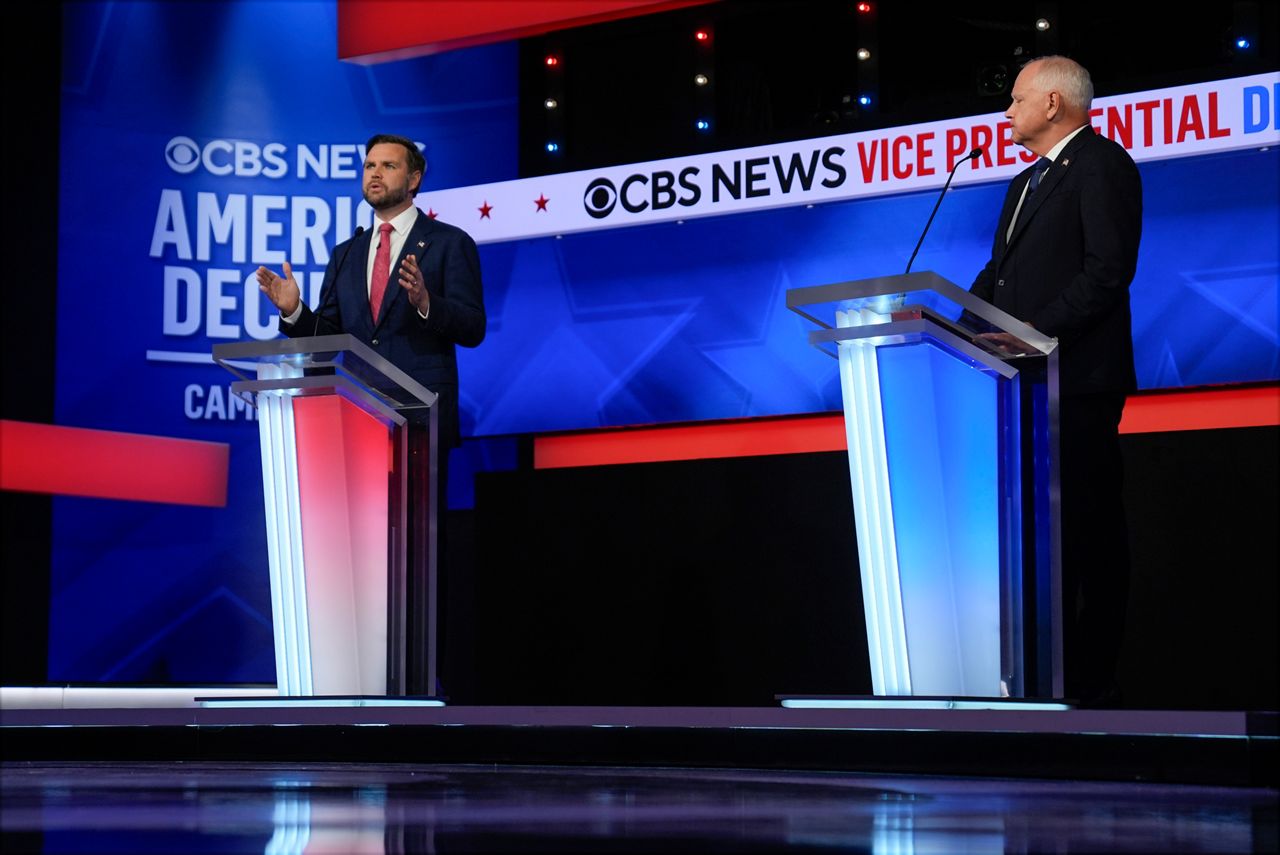
When asked if he would not certify this year’s election results even if every governor certifies their state’s results, Ohio Sen. Vance said he believed, like former President Donald Trump, “that there were problems in 2020” and said those problems should be debated. (There is no evidence of widespread fraud in the 2020 presidential election, a statement backed up by officials in both parties, including Trump’s own Attorney General William Barr; cases claiming fraud brought by Trump and his allies were rejected in courts nationwide, including the U.S. Supreme Court.)
Vance charged that Trump had only encouraged peaceful protests on Jan. 6, 2021, when his supporters mobbed the U.S. Capitol to disrupt Joe Biden’s victory, and that Biden was inaugurated two weeks later on Jan. 20, proving Trump supported a peaceful transfer of power following the 2020 election.
Vance then pivoted to say Vice President Kamala Harris is threatening democracy with censorship of people on social media platforms who engage in misinformation.
“I think that is a much bigger threat to democracy than anything that we’ve seen in this country in the last four years, in the last 40 years.”
Walz pushed back on Vance’s interpretation of the 2020 election and the Jan. 6 attack.
Trump, Walz said, “lost his election, and he said he didn’t. 140 police officers were beaten at the Capitol that day.”
“When Mike Pence made that decision to certify that election, that’s why Mike Pence isn’t on this stage,” Walz said. “What I’m concerned about is, where is the firewall with Donald Trump? Where is the firewall if he knows he can do anything, including taking an election, and his vice president’s not going to stand [up] to it.”
Walz also asked Vance point-blank if Trump lost the 2020 election — and the Ohio Republican dodged the question, saying instead he was “focused on the future.”
“That’s a damning non-answer,” Walz replied.
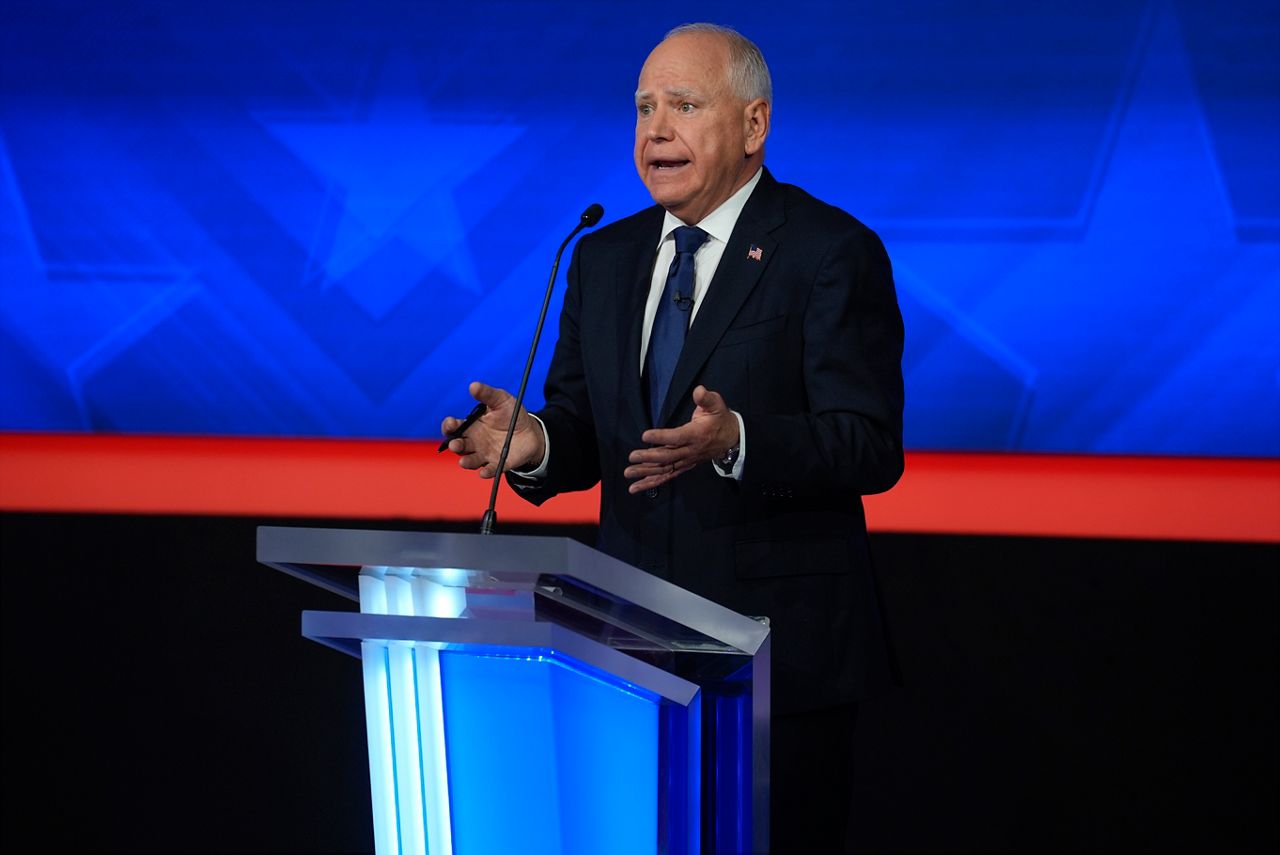
Walz was asked about his claim that he was in Hong Kong during the 1989 pro-democracy protests in Tiananmen Square, which resulted in hundreds of demonstrators killed. Reports have pointed out a discrepancy in Walz's claim, saying he was there weeks later.
Gov. Walz said he traveled to China in the summer of 1989 and traveled home to Nebraska to start a program that took young people there.
When moderator Margaret Brennan asked Walz again to explain the discrepancy, he at first said, "I’ve not been perfect, and I’m a knucklehead at times," before admitting he "got there that summer and misspoke."

Referencing Vance's previous comments saying Trump was unfit for the nation’s highest office and that he could be "America’s Hitler," moderator Norah O’Donnell asked why Americans should trust that Vance would give Trump the advice he needs to hear and not just what he wants to hear.
“Because I’ve always been open,” Vance said. “Sometimes, of course, I disagree with the president, but I’ve also been extremely open about the fact that I was wrong about Donald Trump.”
He accused news media of creating “dishonest fabrications” of Trump’s record and praised the former President for delivering for the American people with “rising take-home pay, an economy that works for normal Americans, a secure southern border.”
“When you misspeak, when you get something wrong, and you change your mind, you ought to be honest with the American people about it," Vance said.
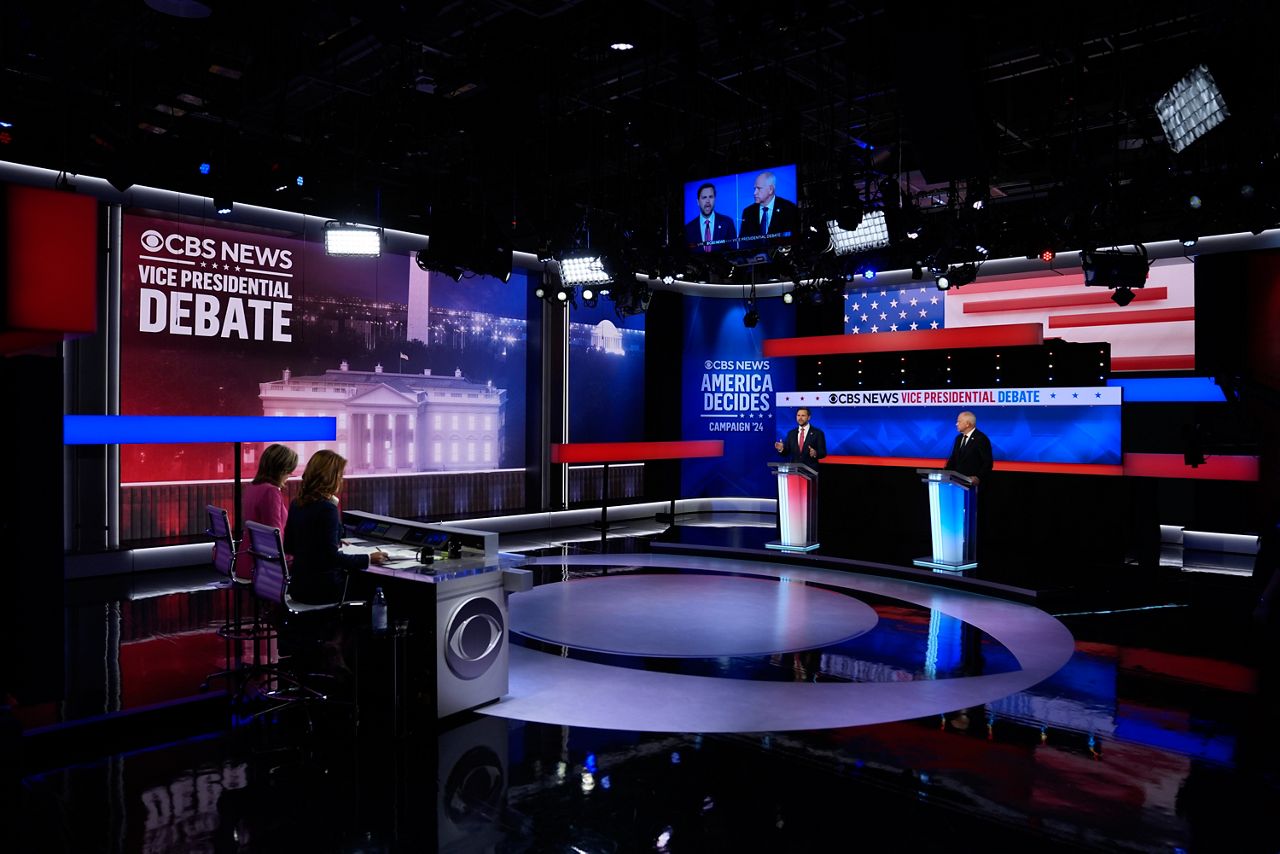
Vance and Walz sparred over Trump and Harris’ records on the economy while in office.
Walz made the argument that the 2017 tax cuts enacted under Trump, which are set to expire in 2025, only benefited the wealthy in the U.S., while making the case that his current plan to place tariffs on goods imported from overseas would, in effect, be a 20% sales tax on consumers in America. (Economists that Spectrum News has spoken to have warned that Trump’s tariff plan could wind up costing Americans more.)
“Donald Trump made a promise, and I’ll give you this: He kept it, he took folks to Mar-a-Lago, he said ‘you’re rich as hell, I’m gonna give you a tax cut,’” Walz said. “He gave the tax cuts that predominantly went to the top class. What happened there was an $8 trillion increase in the national debt, the largest ever.”
Vance charged that if Harris’ plans were better for the economy, they would have made a difference over the last three-and-a-half years she and President Joe Biden have occupied the White House. At one point, he referred to her economic record as “atrocious.”
“She had the opportunity to enact all of these great policies, and what she’s actually done instead is drive the cost of food higher by 25%, drive the cost of housing higher by about 60%, open the American Southern border and make middle class life unaffordable for a large number of Americans,” Vance said. (The vice president cannot unilaterally enact legislation.)
At one point, the candidates argued over how much weight to put into the opinion of economic experts after Walz brought up economics who have argued in favor of Harris’ polices.
“My Pro Tip of the Day is this: if you need heart surgery. Listen to the people at the Mayo Clinic in Rochester, Minnesota, not Donald Trump,” Walz said. “And the same thing goes with this.”



